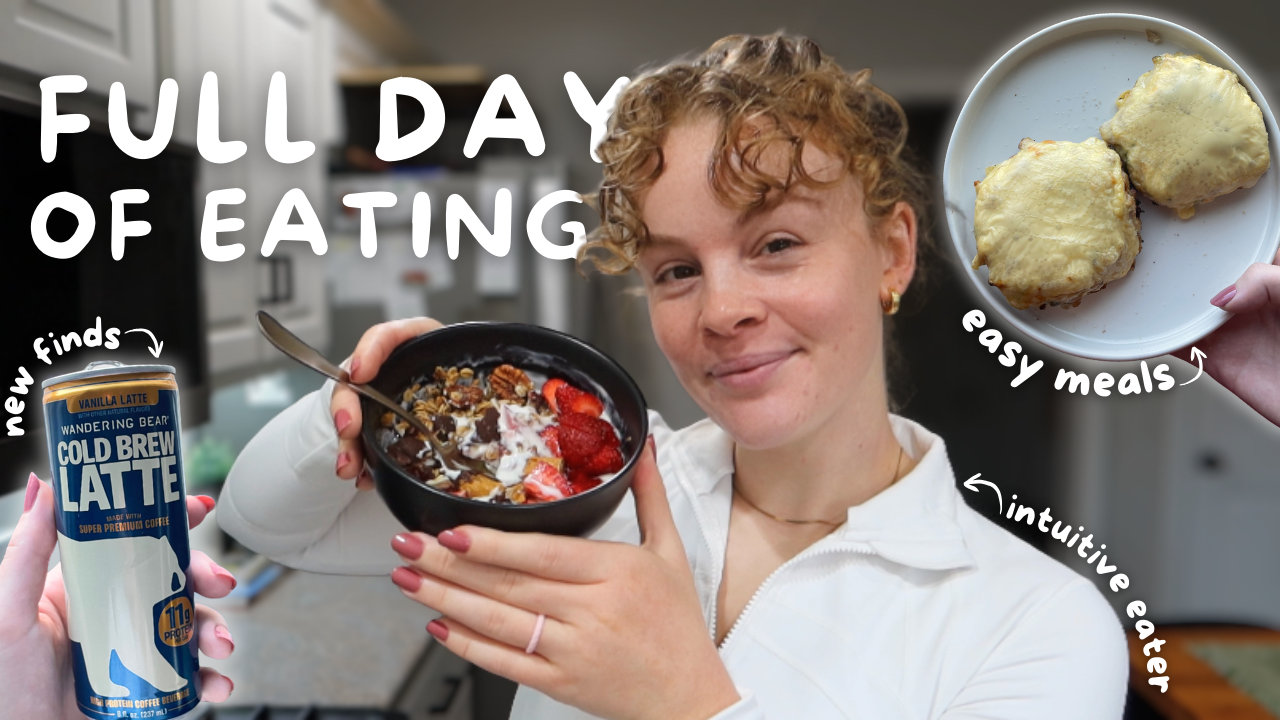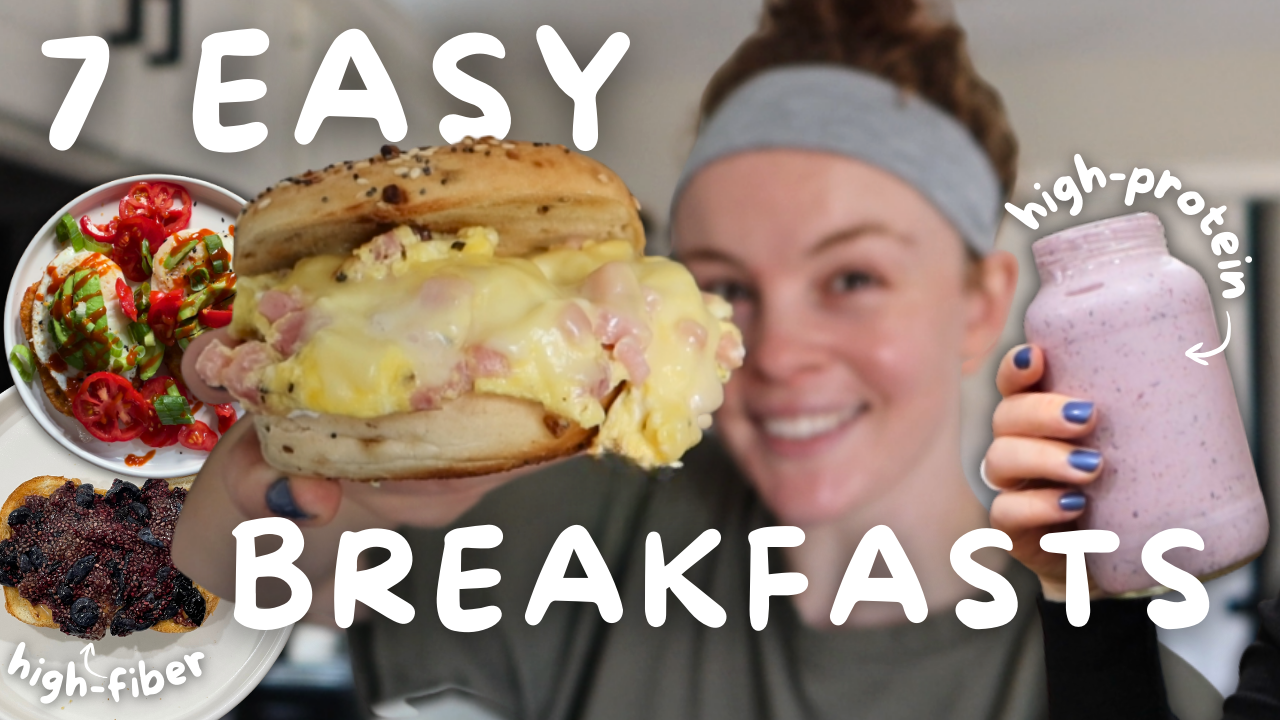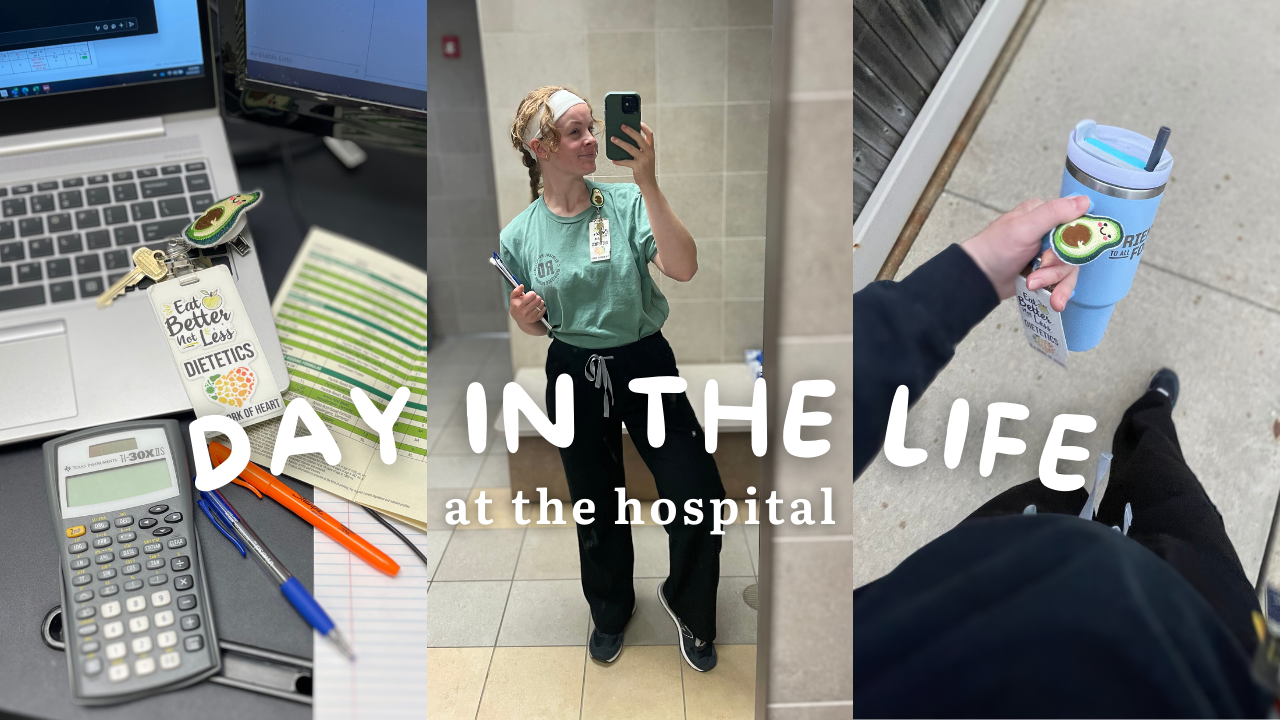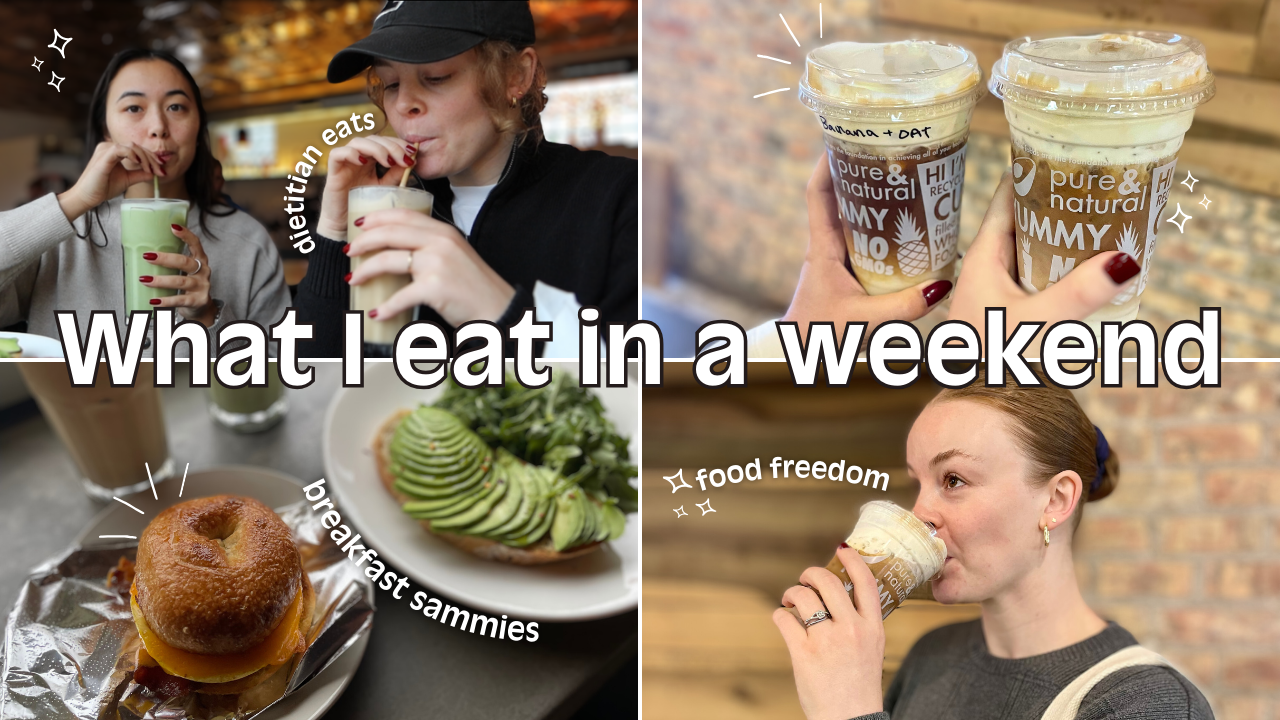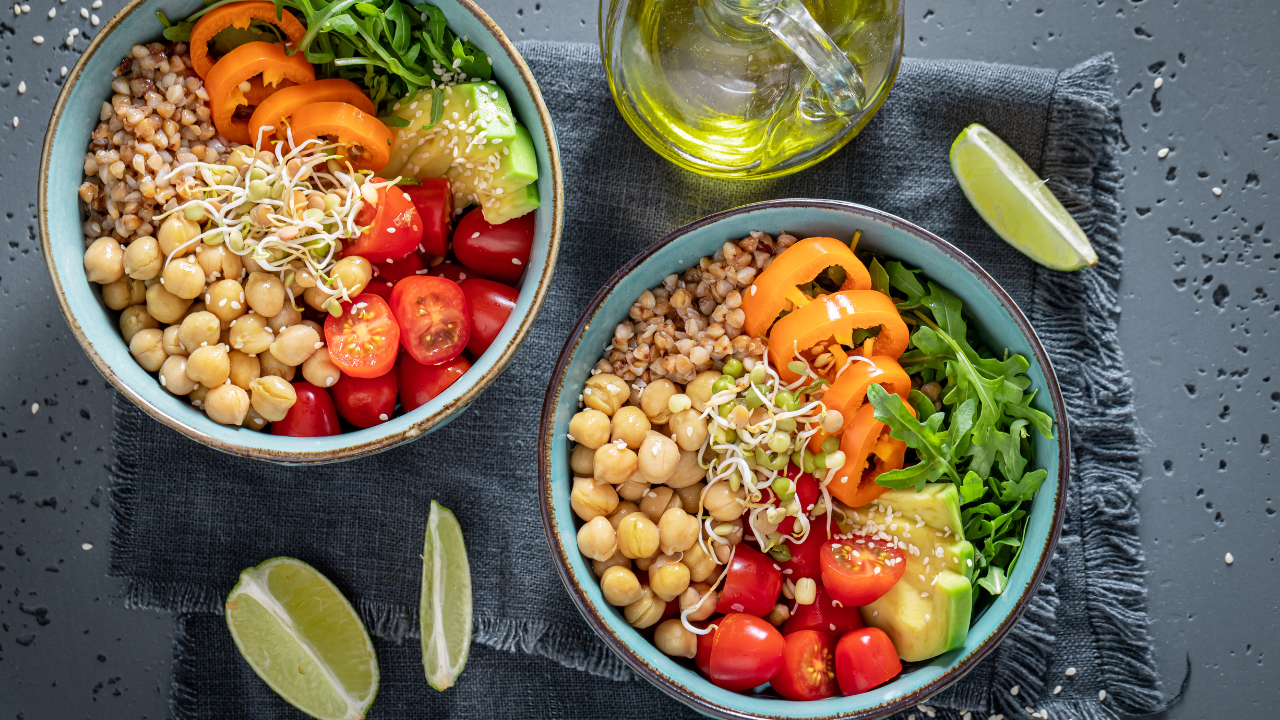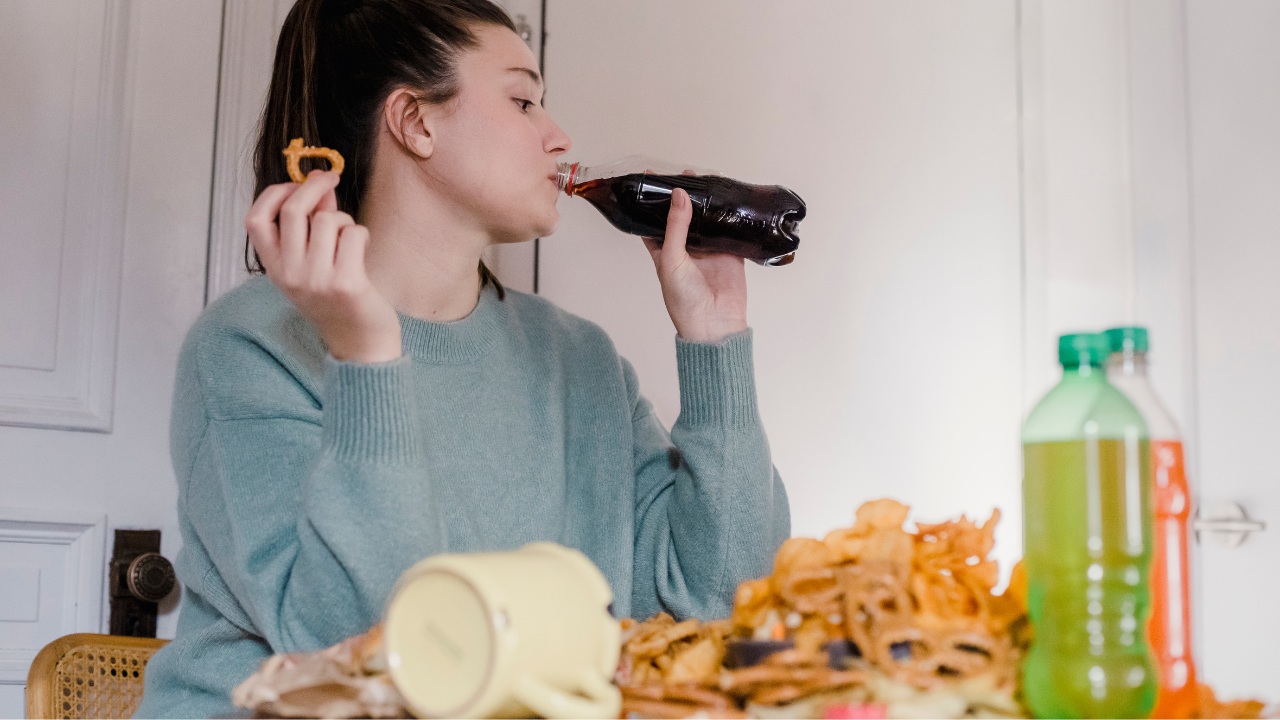Feel Your Fullness - Intuitive Eating Principle 6
It might seem obvious that we should stop eating once we feel full, but because of diet culture, leaving food on your plate can be difficult. When you don't give your body what it wants and needs on a regular basis, it makes sense that you would lick your plate clean any chance you get, even if it means going against your fullness cues.
Feel your fullness is the is the sixth principle of a framework known as Intuitive Eating. If you’d like to learn more about the first five principles, check out these posts:
What is intuitive eating?
Intuitive eating is a non-diet approach to eating that was developed by two registered dietitians, Evelyn Tribole and Elyse Resch. There are 10 principles of intuitive eating with a goal of helping you improve your relationship with food and your body.
Reject the diet mentality
Honor your hunger
Make peace with food
Challenge the food police
Discover the satisfaction factor
Feel your fullness
Cope with your emotions with kindness
Respect your body
Movement - feel the difference
Honor your health - gentle nutrition
New to intuitive eating and want to learn more? Check out this blog post.
Reasons why you might eat past fullness
“Just stop eating when you’re full!” While this seems easy enough in theory, honoring your fullness can actually be quite difficult for many. Let’s go over a few reasons why.
A history of dieting
Diet culture can definitely be to blame for this one. If you have been on diets, you have likely given your body a reason to believe that it should eat past fullness, just in case. This is how popular diets can impact your fullness cues:
Intermittent fasting: when you are finally "allowed" to eat after fasting for a long period of time, you eat as much as you can without any regard for fullness cues.
Liquid diets: drinking an unsatisfying meal replacement shake for breakfast and lunch leads you to overeat at dinner when you can finally eat "real food".
Portion controlled meals (think Optavia or Nutri-System): These meals are barely enough calories to count as a snack. Better eat every morsel while you can!
The “Clean Plate Club”
If you were raised to clean your plate, this may have taught you to disregard your body’s appetite cues. You are no longer hungry? Too bad, you must finish your plate before getting up from the table!
I have met people in their 60s and beyond who are still stuck in the Clean Plate Club. They have spend their entire life building the habit of eating to completion and only stopping once their food is gone.
Food insecurity
If you experienced food insecurity at any point during your life, this may have trained your body to eat extra when food is available. Even if you are no longer food insecure, you body may still be reacting to the past experience.
Skipping meals
Going too long without eating and waiting to eat until you are ravenous makes it very difficult to stop eating once you finally start. Your body has a lot of lost ground to make up for!
Limiting waste
If you have the desire to respect economics or the “starving children in other countries” (did anyone else’s parents say this?), you might find it difficult to leave food on your plate.
Mindful eating
Mindful eating is an approach to food, like Intuitive Eating, that focuses on our experience and sensual awareness with food. This is all about getting out of "autopilot mode" and using all your senses while enjoying a meal or snack.
If you’re someone who finds yourself rushing through meals or not being able to gauge fullness cues well, mindful eating could be a great start to getting back in touch with your body and enjoying food again.
Mindful eating practices
Here are a few ways to practice mindful eating to better engage with your fullness cues:
Pause while eating to take note of hunger and fullness. This is not a commitment to stop eating! Just a taste and satiety check-in.
Eat without distractions.
Eat slowly.
Understand you motivator for eating.
Which type of hunger are you honoring?
Are you eating out of obligation?
Is there any social influence?
Assess how you feel without judgement. If you overate, that's okay! You're human. Get curious about why it happened and make a game plan for next time.
Fullness cues
Okay, but what does fullness even feel like? What signs are we looking for to know when it might be a good time to stop eating? There are various fullness cues to look out for.
No longer paying as much attention to your food.
Losing interest in the meal.
The food no longer tastes as good.
Usually the first few bites taste BETTER as a way for your body to drive you to keep eating. But as you get energy, the intense taste wanes.
Physical fullness or distention in your stomach.
Feelings of boosted energy, and/or a relaxed and pleasant mood.
Can you be addicted to food?
Do you ever feel like you can't stop eating once you start? Or do you notice that you are always thinking about food? If you struggle with what feels like food addiction, I feel for you! It is so tough to feel like food has power over you. I am not here to discredit any of your lived experiences and your feelings around food addiction are valid. That said, you cannot be “addicted” to food.
The term "addiction" means that we are physically or mentally dependent on a particular substance. While our body doesn’t need drugs or alcohol, it does need food. You can't be addicted to something your body needs. There are some better terms to describe this relationship with food:
Food obsession
Food fixation
Food preoccupation
Again, feeling this way is very valid and unfortunately very common.
Food preoccupation is often the result of restriction, either physical or emotional. I go over the differences between physical and emotional restriction in this blog here.
How to overcome food obsession
Although it may feel like you will be “addicted” to food forever, there are ways to break the cycle.
Quit the diet mentality.
Give yourself permission to eat all foods without guilt. Even the "unhealthy" ones.
Eat food for more than just physical nourishment. It’s okay to eat for taste, emotions, celebrations, etc.
Prioritize self care - find other ways to get those happy hormones going.
Eat every 3-4 hours. It’s hard to make satisfying food choices when you feel hungry.
If you think you may have binge eating disorder, reach out to a healthcare professional.
Bottom line
Feel your fullness is the sixth principle of intuitive eating. Practicing this principle will help you to learn to honor your fullness and stop eating once you feel satisfied.
If you are looking for more support in this area, we’d love to guide you inside The Nutrition Reboot Membership.
Up next
Principle 7 - Cope With Your Emotions With Kindess








